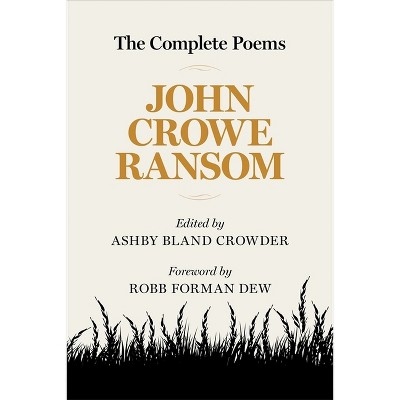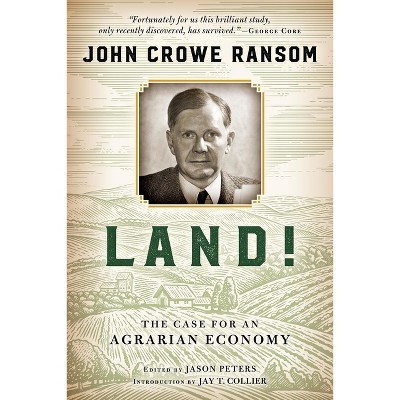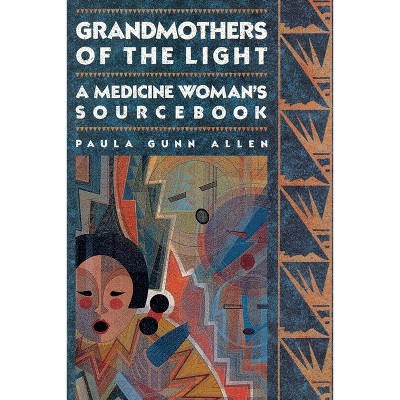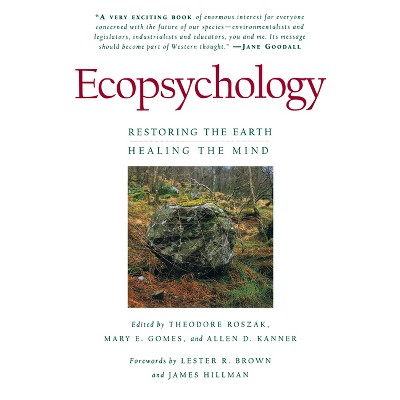Sponsored

John Crowe Ransom and Allen Tate - by Marion Montgomery (Paperback)
In Stock
Sponsored
About this item
Highlights
- The Fugitives were an influential literary group that began at Vanderbilt University in the 1920s.
- About the Author: The late Marion Montgomery was professor emeritus of English at the University of Georgia.
- 151 Pages
- Literary Criticism, American
Description
Book Synopsis
The Fugitives were an influential literary group that began at Vanderbilt University in the 1920s. Although the philosophically driven alliance was short-lived, two of its members, John Crowe Ransom and Allen Tate, went on to become influential Southern poets and theorists.
In this work, a self-proclaimed third-generation Fugitive-Agrarian concentrates on the history and mystery of nature. The author supports the recovery of fundamental principles required for the economic, social and political health of our communities. He explores Fugitive-Agrarian concepts of nature, history, science, industry, person, family and community. His discussion focuses particular attention on John Crowe Ransom and Allen Tate and how they diverged in their philosophies of intellect and the written word.
Review Quotes
"taking as his starting point a philosophical antagonism between Ranson and Tate, Montgomery explores such problems as the power of 'well-ordered words' and an individual's 'essential unity of intellect' in relation to the creator and creation"-American Literature; "engaging...readers...will be rewarded in reading [Montgomery]"-Modern Age; "I regard Marion Montgomery as one of the most acute and profound criticis of present-day American culture. He brings to his discussion of it penetrating insight and solid scholarship."-Cleanth Brooks.
About the Author
The late Marion Montgomery was professor emeritus of English at the University of Georgia. In 2003, the Intercollegiate Studies Institute honored Montgomery with the Gerhart Niemeyer Award for Distinguished Contributions to Scholarship in Liberal Arts. He lived in Crawford, Georgia.Shipping details
Return details
Trending Poetry











